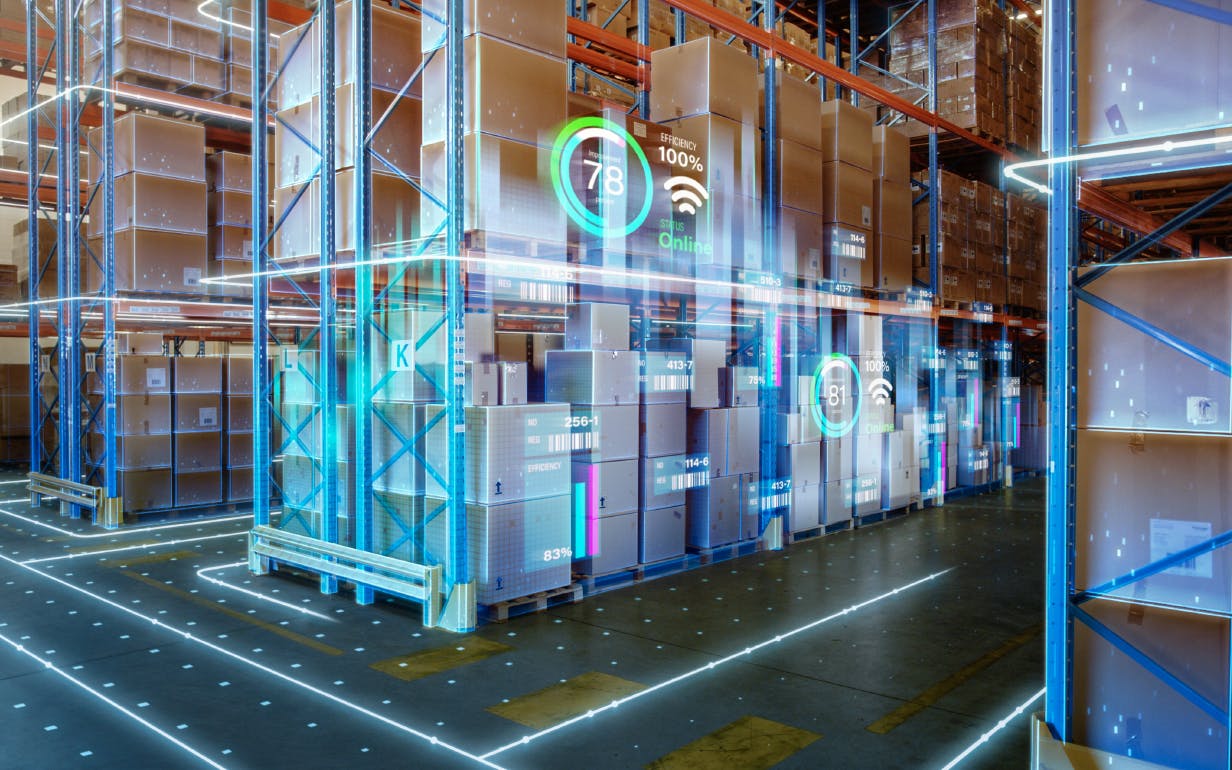Rising shrinkage. Shifting consumer behaviors. Out-of-control inventory management that leads to stockouts or overordering. Many legacy technology systems can't keep up. And when you're in retail, these entrenched issues challenge operational efficiency and drive plans for innovation. So, what are leading retail brands doing to solve these critical and ongoing concerns?
According to a recent survey by Turing, "Insights from Industry Leaders: A View from the Edge of Applied AI," the majority of retail leaders said their top priority is identifying and implementing the right AI solutions. Retailers using AI strategically—and guided by external AI technical and advisory partners—are seeing measurable gains in operational efficiency, customer retention, and profitability. Let's take a closer look at the top five retail challenges AI is solving right now, with clear examples of how forward-thinking retailers are turning pain points into profit centers with AI applications in retail.
1. Shrinkage is skyrocketing, but AI catches shoplifters
Retail shrinkage is a $100 billion problem. Self-checkout errors and targeted retail crimes, including shoplifting, are thinning out already slim margins. Traditional security methods aren't keeping pace with shoplifting spikes, especially those connected with self-checkout. AI-powered loss prevention solutions are helping retailers deploy intelligent surveillance and real-time anomaly detection for both in-person shopping and online. Loss prevention solutions identify suspicious behavior such as repeated mis-scans, irregular checkout patterns, or multiple attempts to access an online account.
Retailers aren't just fighting shrinkage in stores. As AI use cases in retail show us, e-commerce platforms are deploying AI for real-time fraud detection and loss prevention. One major online retailer partnered with Turing to implement an AI security layer that identified suspicious behavior as it occurred, improving customer trust and protecting the bottom line.
2. Out-of-stocks hurt sales, but AI enables real-time inventory management
Even with advanced POS and supply chain systems in place, retailers still lose billions to out-of-stocks and overstocks every year. It's not just wasteful; it's frustrating for customers and damaging to brand reputation. When a customer orders an item on backorder—or worse, a retailer doesn't have it at all—they're likely to go to a competitor.
AI-powered operational efficiency tools are making it easier to manage inventory. With predictive analytics and demand forecasting, retailers are using AI to automate inventory decisions based on real-time conditions instead of historical sales data. Data points ranging from foot traffic to search information from websites can help predict a rise or fall in demand, enabling solutions that order in-demand items automatically or put items that aren't moving on sale.
Consider this AI in retail example. When a large consumer packaged goods (CPG) firm wanted better inventory control, they partnered with Turing to automate real-time inventory tracking, identifying errors and inconsistencies to prevent miscounts and improve readiness. CPG firms in high-compliance areas, like cosmetics or personal care items, can implement similar technologies for a simplified inventory supply chain.
3. Customer loyalty is slipping, but AI in retail is fighting back
Consumers want to buy from brands that personalize their experience, suggests research from the XM Institute. To connect with customers, retailers aren't just competing on price anymore. They're competing on their ability to deliver personalization, scaled across every interaction. But this is hard to do well without the right data and tools.
AI is changing the game and helping retailers rebuild loyalty with smarter, more relevant interactions. Instead of relying on segmenting customers based on demographics or historical behavior, AI-powered personalization engines can tailor promotions, product recommendations, and loyalty rewards. These systems can look at a variety of real-time signals to infer search intent and meet the consumer exactly where they are.
For example, a major retailer partnered with Turing to build a more effective recommendation engine, strengthening personalized suggestions and streamlining auto-shipping. By improving the user experience and encouraging repeat engagement, these enhancements can ultimately boost revenue.
4. Retail data gets complex, but AI breaks down silos
Consider the data that a retail manager may need to make strategic decisions: information on sales, product categories, customer profiles, broader economic context, competitor pricing, and more, which change daily or hourly. Data fragmentation can stop retailers in their tracks from successful AI adoption. Customer information, transaction data, loyalty metrics, and inventory reports often live in separate systems. Retail leaders are feeling that pain, with 32% surveyed citing poor data quality as a major challenge.
AI can help put retailers back in charge. Instead of messy spreadsheets and historical charts, real-time analysis helps retailers with faster, smarter decision-making. AI tools can integrate siloed data into a big picture and use natural language interfaces to let non-technical users ask complex questions. Whether it's regular reporting at the local store level or an executive dashboard, putting accurate and current data into managers' hands dramatically improves performance.
When a global beverage producer wanted a unified dashboard to help with joint planning and sales projections, they worked with Turing to assess data and build a platform that could act as a single source of truth for the company's executives.
5. AI resistance is real, but smart pilots change minds
Even when leaders are excited about the future of AI in the retail industry, organizational resistance can stall progress. Legacy systems. Fear of job loss. Change fatigue. Turing's survey found that while over half of retail leaders said they're discouraged from previous AI attempts, 96% remain excited about AI's potential. Yet, there are very real barriers, including a lack of clear business objectives.
However, these issues can be overcome. Start with AI and retail projects that show quick wins or solve employee problems. Consider a scheduling tool that better maps shifts to store traffic and employee preferences, helping reduce burnout and increase satisfaction. By starting small and proving value, it's possible to get employees excited about the potential of AI to improve their jobs. Companies regularly turn to Turing for help with training and messaging around AI initiatives, and the data is clear. Companies that frequently engage outside resources have a 32% success rate, compared to just 21% among those that don't.
Successful use of retail AI solutions is about strategy, not just technology
Retailers today aren't lacking tools. They're lacking the foundation they need to gain traction. But the benefits of AI in retail stores are real. By integrating AI in the retail value chain, companies can optimize everything from inventory management to personalized customer experiences, driving greater efficiency and profitability. Retailers that are working with outside experts, prioritizing urgent use cases, and achieving quick wins before they scale are turning early investments in AI into a competitive advantage.
Ready to see what AI can transform for you/
The retail space is ready for AI, and Turing Intelligence is ready to partner with you to make that a reality.
Want to accelerate your business with AI?
Talk to one of our solutions architects and start innovating with AI-powered talent.




